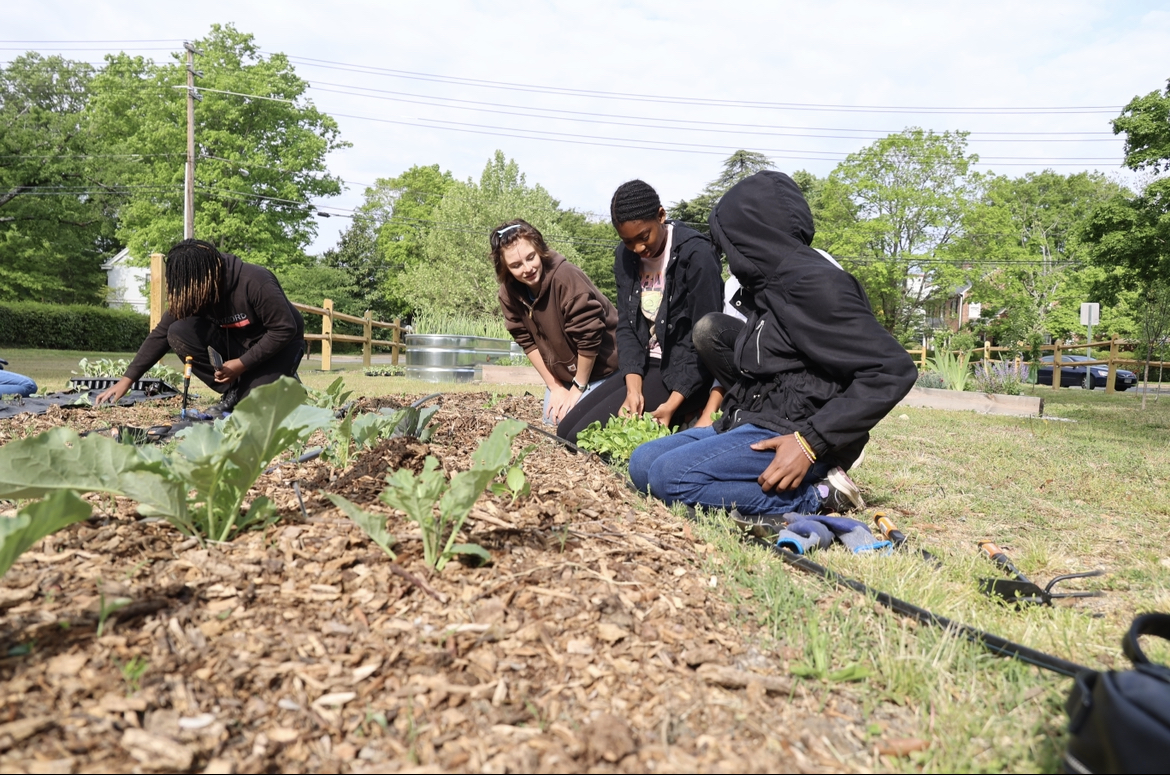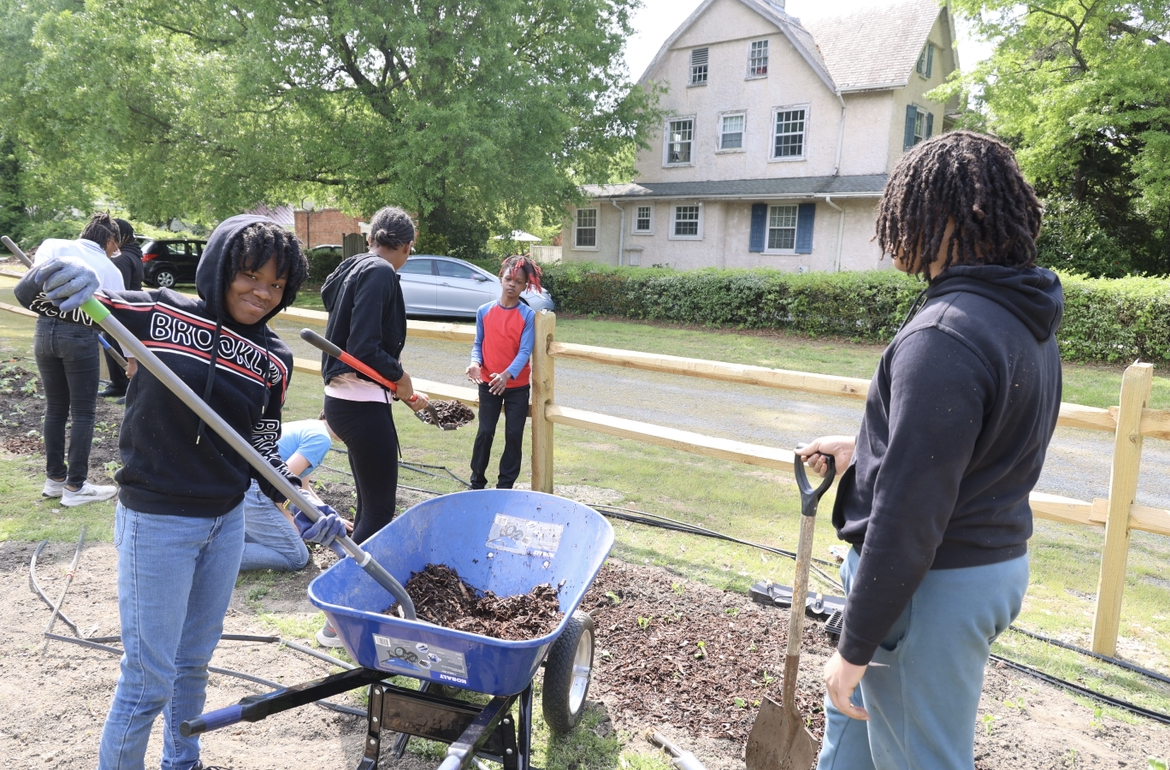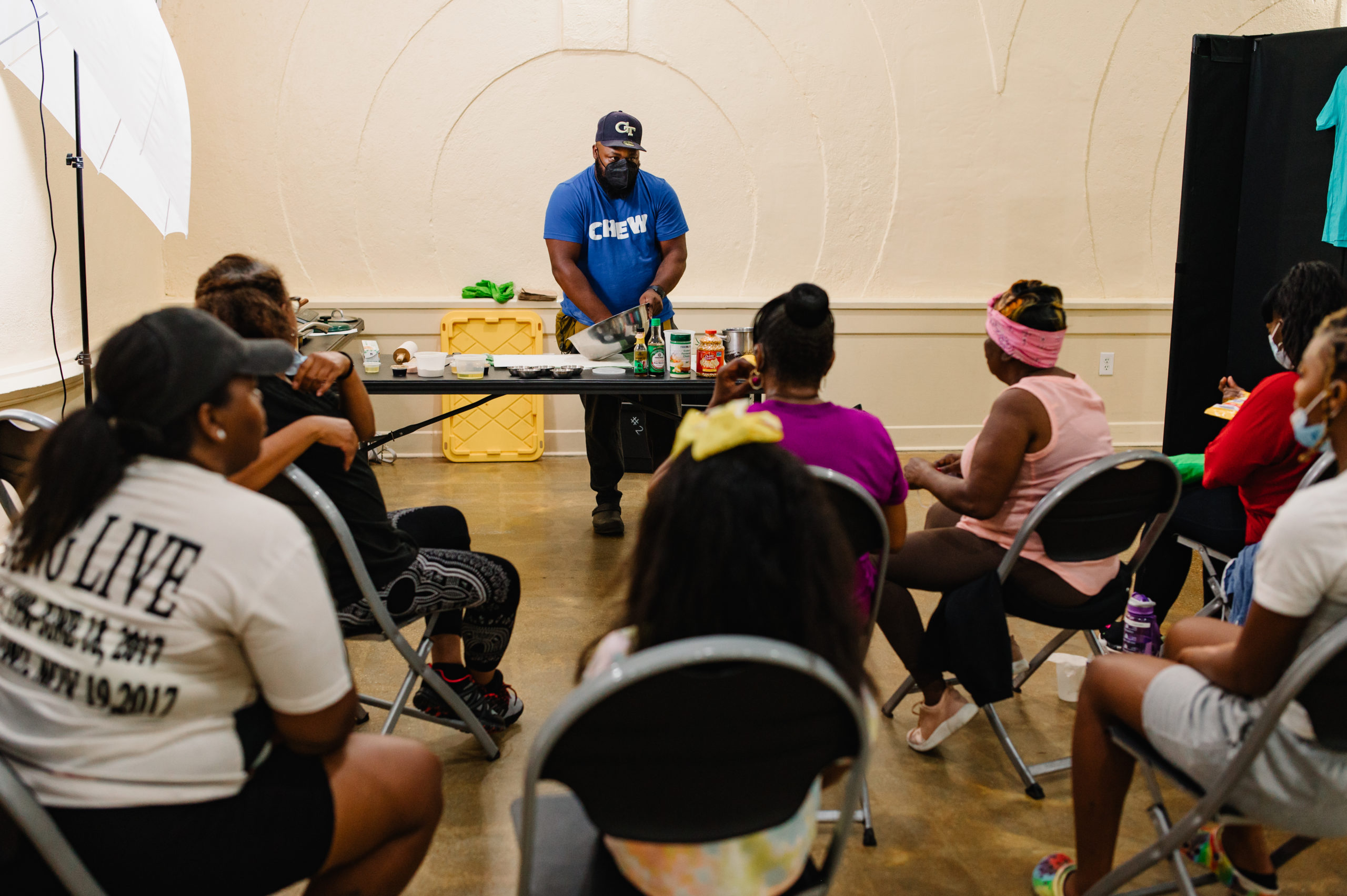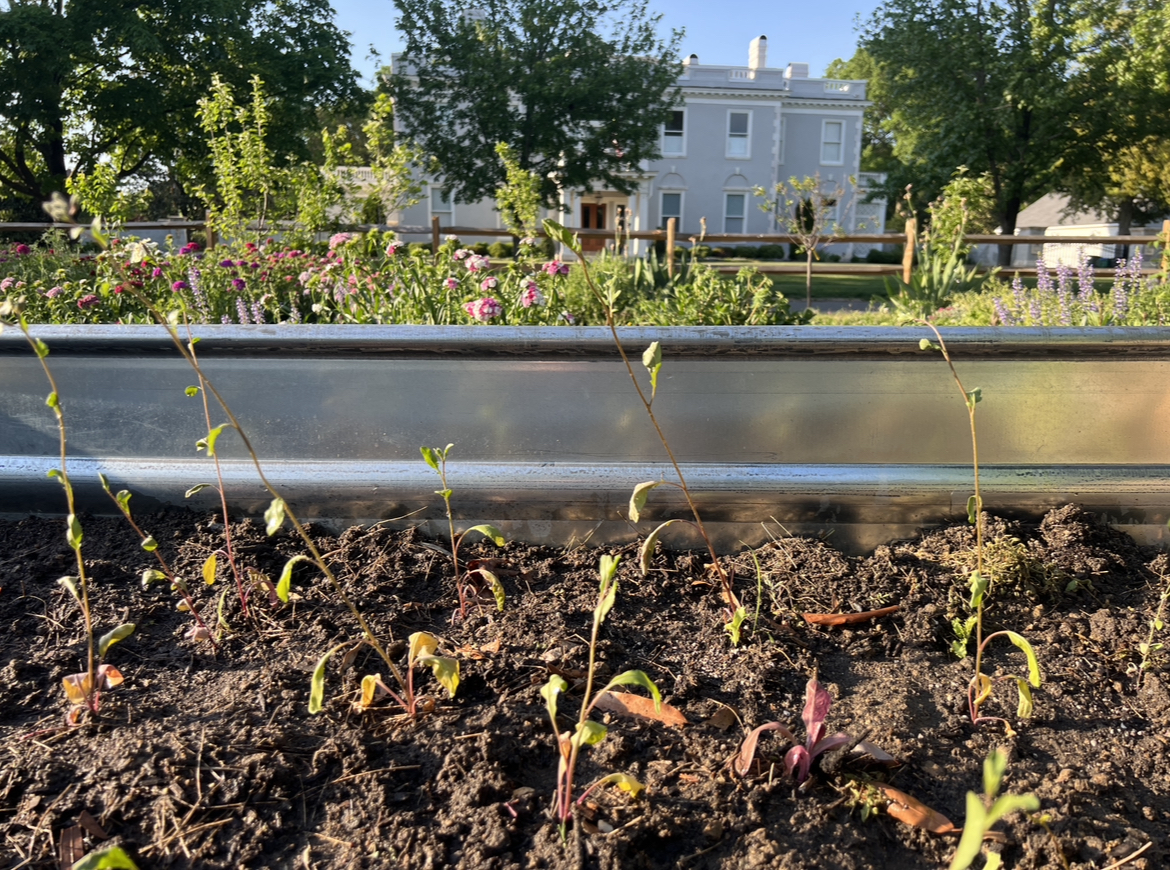By Evelyn Zelmer
We sit in what used to be a church parking lot, on stumps that used to be trees, surrounded by the promise of everything that is still to come.
Across from me is an urban farmer named Luz, the co-lead here at Brook Road Youth Farm, an educational community garden site that focuses on connecting food-insecure youth with the processes and benefits of planting, tending, cooking, and eating fresh produce. It’s early in the season, so there are no young learners around. But it’s all here waiting for them: tilled rows of latent crops and raised beds of vegetables, herbs, and flowers.
Luz works for Duron Chavis, a prominent community food activist who began leasing this small lot from Ginter Park Presbyterian Church in 2021 for the generous price of a dollar per year over a 12-year period. Led by Chavis’s non-profit Happily Natural Day, the space was developed and cultivated in 2022, and so began the Brook Road Youth Farm summer program.

Brook Road Youth Farm summer program participants bonding as they prepare seedlings to be planted. (Photo courtesy of Happily Natural Day)
This 12-week educational daycamp involves a cohort of 15 teenagers, aged 11 to 18, who participate in workshops related to gardening, farming, nutrition, mindfulness, and spiritual and physical wellness. Each participant is paid a stipend of $600 over the course of the program, which operates in a food desert in the Northside of Richmond, Virginia. They focus on teaching how gardening and community-building can intersect, Luz explained, with a heavy emphasis on entrepreneurial skills so that the young people can eventually run the site.
Beyond growing the food, the instructors also teach participants how to use the food. At last summer’s graduation ceremony, for example, the instructors and students harvested the garlic, kale, and other organic vegetables they’d grown over the summer. After stewing these crops into a vegan meal with rice and beans, the kids and their families feasted as plaques and certificates were awarded to a new generation of urban farmers. It was a “successful harvest,” Luz said—the first of many, as the harvests will grow more substantial as the years progress.

Brook Road Youth Farm participants are taught how to use flowers and herbs from their garden to concoct holistic herbal remedies. (Photo courtesy of Happily Natural Day)
Compared to their work in other community gardens and farm-sites around the city, Luz described working with kids at Brook Road as “fulfilling in a different way.”
“Young people are a marginalized group in their own right,” Luz said. There’s a large lack of respect for the wisdom of the youth, and also for their potential to change the world. It’s said time and time again, young people are the future.”
At Brook Road Youth Farm, the emerging wisdom of young people is something that is being actively cultivated.

“Asasye Smile”— a photo of the 2022 program participants distributing compost onto new plants. (Photo courtesy of Happily Natural Day)
More broadly, this sort of reciprocal agricultural and nutritional education constitutes an important network of aid around Richmond. For example, Cornerstone Community Farm, an urban farm and outdoor classroom at Fairfield Middle School on the East End, sells its produce to The Market at 25th, an affordable oasis of fresh produce in the area’s food desert.
Then, once the produce reaches market, clinical programs like Produce Rx at Shalom Farms prescribe vouchers for fresh produce to their patients as a type of medicine for health conditions caused by malnutrition. Organizations like Shalom Farms and CHEW (Cooking for Health Education and Wellness) integrate culinary nutrition training into their community outreach programs, ensuring that people are getting the most value possible from their fresh fruits and vegetables.

Shalom Farms Community Nutrition Manager Jason Muckle teaches a free cooking class. (Photo courtesy of Shalom Farms)
Brook Road Youth Farm is a part of this collective mission to not only increase access to healthy food for marginalized populations in Richmond, but also to educate these populations on how to grow, prepare, and mindfully ingest that healthy food.
This mission is being enacted against the historical, political, and racial barriers to food security in the city. “But, if we can integrate food, water and youth education into a more cohesive system,” Luz told me— “If we can reorient and reprioritize, then I think that there is a great potential for growth and change.”
Here at Brook Road Youth Farm, I spent the day’s session of “Dirt Therapy”— a volunteer program sponsored by Happily Natural Day– planting arugula seedlings in a raised bed. Under a hot April sun, I lifted cubes of dirt and roots from their brittle plastic tray, used a trowel to make spaces in the earth for their fresh growth, lowered them into these spaces, and tamped down the soil around them to scaffold the height of their new stalks.
Carving out space for young things to grow and sustain themselves—this is what Brook Road Youth Farm does for its student farmers. And this summer, when its peppery leaves become edible, Luz and the rest of the staff will use this arugula to feed the kids.
Mind, body, and soul.

Freshly planted arugula seedlings at Brook Road Youth Farm. (Photo by Evelyn Zelmer)
